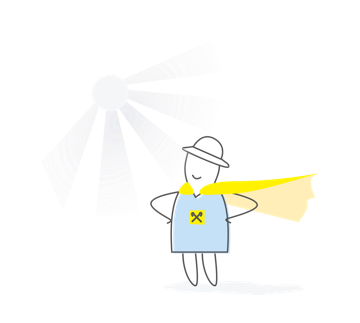What will bring business in 2019
2018 experts called the year a moderate growth in the economy. The relative stability of the dollar and the projected GDP growth of 3% allowed the Ukrainian business to maintain a certain balance and develop. However, the problems that troubled entrepreneurs in previous years are still relevant.
Legislation
In 2018, the Verkhovna Rada voted for the following laws, which partially facilitate the work of a business and will affect its capabilities in 2019:
• The Single Window Act at customs, which simplifies bureaucratic procedures and minimizes paperwork.
• The Law “On Currency and Currency Transactions”, which allows Ukrainians to open accounts with foreign financial institutions and conduct currency operations through such accounts, in particular, to invest abroad without any individual currency licenses.
• The Law “On Bankruptcy”, which establishes the procedure by which an entrepreneur may become bankrupt. This helps the debtor to get out of the predicament through the court, which should protect him from the pressure of creditors and create conditions for repayment of the debt.
In addition, much has been done to reduce the pressure on entrepreneurs. Thus, the law under the conditional name “Mask Show - Stop!” Helps bring to justice investigators for illegal decisions during the investigation of the case. Its first part prohibits law enforcement agencies from conducting searches without the presence of lawyers, to initiate various criminal cases involving a single composition and to seize equipment. Also, the security forces were obliged to shoot their actions on video, and to record each court session on audio.
However, changes in legislation, according to Vladimir Dubrovsky, economist at CASE Ukraine, are still too slow. The promised GDP growth of 2-3% in the new year is not enough to return the economy to the level of the pre-crisis period. For this, according to him, Ukraine needs GDP growth of 5-6% annually for at least five years, and for this it is necessary to change at least a dozen laws and by-laws and revise the Tax Code. Therefore, domestic business should think about the correction of the strategy and tactics of business.
Financial caution rules
It is expected that the year 2019 will again become a year of turbulence, primarily because there will be many political challenges. And any instability leads to business risks: a fall in demand in certain markets (primarily with respect to luxury goods, goods and services not essential), deterioration of payment discipline, bankruptcy of weak enterprises or their failure to fulfill obligations.
All this we have already passed in 2008-2009 and 2014-2015. Therefore, it is worth remembering the basic rules of caution in the conduct of business. Ideally, you should work only with proven counterparties. Work on a prepaid or partial prepayment with new or questionable counterparties. It is necessary to keep the documentation very scrupulous (to have all contracts, applications, acts, expenditure invoices, etc.), register all transactions in the Accounting Books - not only for the case of inspections of fiscal authorities, which are expected massively this year, but also in case if you need to demand payment for work or goods through the court.
It is also important to provide your business with the support of a financial institution (bank) in case of significant cash gaps, lack of working capital. This will help overdrafts, credit lines. At the same time, expert Vladimir Dubrovsky does not recommend this year to replenish the company's working capital if interest rates are high and the financial result from the renewal does not pay back the costs in the short term (1-2 years).
The economist advises to focus on working with domestic (domestic) suppliers of raw materials in order to avoid the risks of currency fluctuations. “Although special leaps in the exchange rate this year should not be expected, because the assistance of international organizations and the expansion of export potential will even level out the influence of the political situation,” the expert says. It is worth remembering that the hryvnia usually sags a little in spring and early winter and is strengthened in summer and autumn. These are seasonal fluctuations that occur every year. But the currency liberalization proposed by the National Bank should somewhat dampen even these usual differences.
Checks
However, Vladimir Dubrovsky believes that the main risks lie not even in the plane of finances or political instability, but in the regulatory field. The state control authorities have already determined that in 2019 they will conduct more than 30 thousand inspections. Artem Afyan, managing partner of the law firm Juscutum, also speaks about increasing fiscal pressure on business. In 2019, he predicts more attention to entrepreneurs from government agencies.
“We see that the government is already raising the issue of salaries, hidden labor relations. We will also have a new wave of pressure on business through ties with Russia, with Donetsk and Lugansk. In this situation, on the one hand, patriotism requires a complete cessation of any relations with these territories. On the other hand, the problem is that the business will have to be responsible for these ties, even if they were in the past, ”Afyan notes.
At the same time, in the council of the business ombudsman they note that in 2019 we can hope for the best service from the tax. In 2018, this structure simplified the registration of invoices and tax administration. And in 2019 reforms of the tax police, the responsibility of civil servants and the introduction of cash registers are expected.
“According to the new legislation, state control bodies should plan everything, introduce it into the relevant inspection system, and not go for inspections without certain methods. All these structures are now preparing relevant documents that will better regulate their internal work, and submit them to the government for review and approval. As we see, where there are changes, there is a positive effect, ”adds Tatiana Korotkaya, Deputy Business Ombudsman.
Not! - panic and "coagulation"
When a country's economy changes, it is precisely small and medium businesses that remain more flexible and adaptable. Ukrainian entrepreneurs have already learned to work under turbulent conditions and are guided only by themselves. The previous crushing global crises removed the weak from the market and taught the effectiveness of all the others.
According to Dubrovsky, the main means in the new turbulent period should again be cost optimization - by reducing non-urgent expenses and automating work in the enterprise.
“For example, if you are a small entrepreneur, you can save on the services of a lawyer, an accountant at the expense of modern services that require minimal financial expenditures,” says the analyst.
However, saving does not mean reducing the necessary expenses for the office and staff.
“If you stop buying hygiene products in the office, this may reduce your costs, but at the same time reduce the desire of your staff to work in such a company,” the specialist adds.
In many companies, a new problem has emerged - a shortage of skilled workers. This has been particularly acute in the last two years, after the introduction of visa-free. This year it will be expected to escalate. Therefore, many enterprises are working on the outflow of personnel tools of financial and non-financial motivation. In the IT sphere, industry, the agricultural sector are ahead of the curve - they introduce reserve training programs, conducting internships and training for students, and re-qualifying workers. Dubrovsky also advises to revise the wages of workers upward, to adapt the system of motivation - if you can not raise wages, provide a social package, free training, professional development and leisure.
So, although the new bines-year is expected to be difficult, you should not give in to pessimism and resort to radical “anti-crisis” measures. Use the predicted turbulence as a reason for the planned optimization of processes, automation of production, increase of its energy and resource efficiency. Analyze all the processes and find the weak points for which the regulatory authorities may have complaints. Improve the working conditions of staff and their professional level - any business depends on it. All these measures are relevant for stable periods, but without a potential “threat” we rarely remember them!















